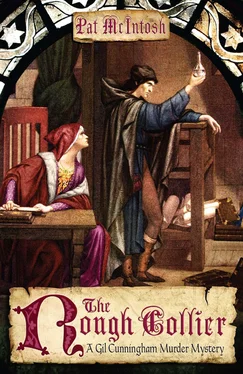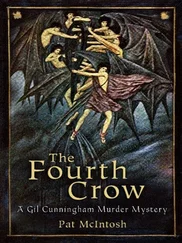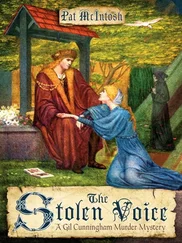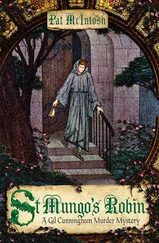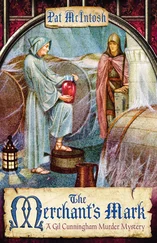Pat McIntosh - The Rough Collier
Здесь есть возможность читать онлайн «Pat McIntosh - The Rough Collier» весь текст электронной книги совершенно бесплатно (целиком полную версию без сокращений). В некоторых случаях можно слушать аудио, скачать через торрент в формате fb2 и присутствует краткое содержание. Жанр: Исторический детектив, на английском языке. Описание произведения, (предисловие) а так же отзывы посетителей доступны на портале библиотеки ЛибКат.
- Название:The Rough Collier
- Автор:
- Жанр:
- Год:неизвестен
- ISBN:нет данных
- Рейтинг книги:4 / 5. Голосов: 1
-
Избранное:Добавить в избранное
- Отзывы:
-
Ваша оценка:
- 80
- 1
- 2
- 3
- 4
- 5
The Rough Collier: краткое содержание, описание и аннотация
Предлагаем к чтению аннотацию, описание, краткое содержание или предисловие (зависит от того, что написал сам автор книги «The Rough Collier»). Если вы не нашли необходимую информацию о книге — напишите в комментариях, мы постараемся отыскать её.
The Rough Collier — читать онлайн бесплатно полную книгу (весь текст) целиком
Ниже представлен текст книги, разбитый по страницам. Система сохранения места последней прочитанной страницы, позволяет с удобством читать онлайн бесплатно книгу «The Rough Collier», без необходимости каждый раз заново искать на чём Вы остановились. Поставьте закладку, и сможете в любой момент перейти на страницу, на которой закончили чтение.
Интервал:
Закладка:
‘Terrible, terrible. I’m right glad to ken the truth of it,’ said the priest at length. That’s more than any of us knows, thought Gil, but did not smile. ‘And dead unshriven, pysoned by an unkent hand, you say? Terrible, terrible. God rest their souls. But I’m at a loss to ken how I might help you, maister. I’ve no notion who these folk might be, having never set eye on a one of them, and what I might tell you to your purpose it’s beyond me to say. I’m sorry you should ha’ rid out here only for that.’
‘He’d no reason to call here,’ agreed Gil. ‘No, sir, I’ve ridden here on another matter. Do you mind a man called Adam Crombie, a collier, who died in this parish a good few years back? I think it was over at Elsrickle.’
‘Elgrighill,’ repeated Sir Billy, giving the name a different twist. ‘Crombie. Aye, maister, there’s such a name in the parish records. I was looking in them only last month, when I buried Maggie Jardine’s youngest. What was it you were wanting to hear of him?’
‘Anything you know,’ said Gil hopefully. ‘How he came to die here, whose house he died in, where he’s buried. The date of his burial, if you have it.’
‘Oh, aye?’ The priest looked dismayed. ‘I’m thinking you’re in the wrong place for all that, maister. Can his folk no enlighten you? For there’s naught in the records but the day of his burial, that’s for sure.’
‘Could you show me that?’ asked Gil, thinking that he seemed to spend more time than he wished foraging through old documents. A man of law dealt with such things as a matter of course, but somehow this other occupation seemed to gravitate naturally in the same direction.
‘I could.’ Sir Billy looked at the sky, and then at the strip of ploughed land he had achieved in the day. ‘I need to get this turned, for all that. It’s time the oats was in, or I’ll ha’ no meal next winter. I hope you’ll can wait while I’ve daylight?’
‘I’ve a long ride home,’ Gil said. And a squabble to mend at the end of it, he thought ruefully. ‘And I’d hope for a word with whoever witnessed the man’s death afore I take the road. The quest on the two that were poisoned is for the morn’s morn after Sext, I must be back in Lanark by then.’
‘You’re welcome to a bed in the kirk,’ Sir Billy assured him. ‘My loft’s dry and snug, there’s room for a pallet for you, and your man can lie in the town. Plenty time for the ride back to Lanark the morn, and you look like a man of sense, maister, you’ll can catch us up wi’ the way the world’s turning as Young Dandy would never think to do.’
‘I really — ’ Gil began, recalling the way Alys had refused his kiss when they parted before the gates of Cauldhope.
‘No, no. Away you up the town, maister,’ this appeared to mean the huddle of cottages on the hillside above the church, ‘bid Joan Liddell give you a stoup of her twice-brewed, and I’ll come for you when I’m done here.’
Sir Billy bent his back to the plough again, and Gil stepped reluctantly back from the claggy furrows, watching the man’s expert thrust and heave with the simple device and the way the black soil turned and crumbled away as the culter tilted, the worms wriggling in the fresh tilth. The gulls swooped screaming from the kirk roof, and he turned and picked his way obediently up to the houses.
Patey was already established in Mistress Liddell’s house, buried to the cheekbones in a wooden beaker. He emerged from it grinning as Gil ducked under the lintel, directed by the same ancient as before.
‘Aye, maister,’ he said, and licked the foam from his top lip. ‘I doubt we’ll no get back to Carluke this night. The light’s going already.’
By the time he got the promised sight of the parish records, Gil felt he had paid dear for it. Mistress Liddell’s twice-brewed was strong, but sour; he suspected there were nettles in the mash, and possibly other strange adjuncts, but knew better than to ask. He sat by her door, his feet tucked under the bench to avoid the steady dripping from the thatch, surrounded by an attentive audience who demanded news of the rest of the country, of King James, of the doings in Lanark and Carnwath. They had little interest in Edinburgh or Glasgow, but heard the latest tale of the embassies to English King Henry with judicious noddings. It was more taxing than his visit to Forth, reminding him strongly of the examinations which had earned him his two degrees. At least then he had not been interrupted by Patey, who had an opinion on everything.
Sir Billy came up from the glebe land in the midst of the interrogation, and drew a stool into the doorway as of right, stretching his boots out under the eaves-drip so that the last of the mud was washed off. Mistress Liddell, a small determined woman in a sacking apron, had already assured Gil that the priest aye sent strangers to sup her ale, and he was clearly as much at home under her roof as any of the assembly. As the light failed, the hearers slipped away to their suppers, but much to Gil’s relief he and Patey were summoned within, seated with the priest and Mistress Liddell’s man round the peat-fire in the centre of the floor, and served with hard, dark bread and broth in generous wooden bowls. The broth was savoury with roots and meat; when Gil commented, the man of the house, silent until then, said:
‘Aye, the mistress keeps a good stewpot.’
‘Joan and her man feed me for their tithe, ye see,’ said Sir Billy, ‘for I don’t like to have charcoal in my loft. Too close to the thatch.’
‘That’s right handy,’ said Patey, ‘for a woman kens cooking and a priest kens priesting and why mix one wi’ the other? It’s right good, mistress, if you wereny spoke for a’ready I’d be looking to take you back to Belstane wi’ me.’
‘Och, you!’ said Mistress Liddell, not displeased. ‘Now you’d best be down the hill wi’ your guest, Sir Billy, afore the light’s all away. Will I draw you a jug of the good stuff to take along wi’ you?’
‘Aye, do that, Joan. Come away, then, Maister Cunningham, we’ll get a look at the books.’ Sir Billy rose to his considerable height, pronounced a blessing, received the promised jug, and made for the doorway, Gil following him. As the man of the house drew back the leather curtain which blocked it, rain rattled on the walls and blew through the aperture. Patey, dim in the glow of the peat-fire, raised his wooden beaker and settled lower on his creepy-stool.
‘Good night to ye, Maister Gil,’ he said, apparently without irony.
Chapter Twelve
Walking into Dalserf from the ferry at Crossford, Alys had no trouble finding the kirk, long before Steenie’s helpful comment. It stood on the flat ground in a bend of the Clyde, neatly built of dressed red stone, and had a tall porch and two glazed windows in its south wall. A dozen or so small cottages crouched round it, and a track led to more perched among the trees in a cleft of the steep valley side, woodsmoke rising through their thatched roofs to mingle with the green haze of the new leaves.
Sir Simon Watt, priest of Dalserf, a small wiry man bundled in a worn budge gown, was delighted to receive a bonnie young lady as a visitor. He said so, a number of times, while he bustled about the low-ceilinged chamber above the porch, setting a stool for Alys, calling down to one of the old women in the church for ale from the best brewster in the place, locating a box of sweetmeats someone had given him last Yule. Finally he sat down opposite her, and surveyed her appreciatively with sharp grey eyes.
‘And what can we do for you in Dalserf, madam? I take it you’re no after pastoral counsel, seeing Jackie Heriot’s a deal closer to Belstane than we are. You’ve never crossed the Clyde just to view our wee kirk?’
Читать дальшеИнтервал:
Закладка:
Похожие книги на «The Rough Collier»
Представляем Вашему вниманию похожие книги на «The Rough Collier» списком для выбора. Мы отобрали схожую по названию и смыслу литературу в надежде предоставить читателям больше вариантов отыскать новые, интересные, ещё непрочитанные произведения.
Обсуждение, отзывы о книге «The Rough Collier» и просто собственные мнения читателей. Оставьте ваши комментарии, напишите, что Вы думаете о произведении, его смысле или главных героях. Укажите что конкретно понравилось, а что нет, и почему Вы так считаете.
